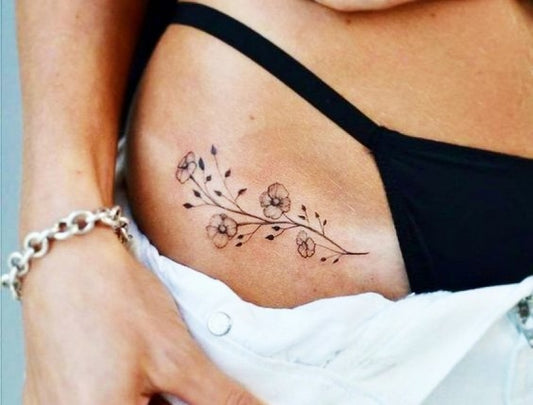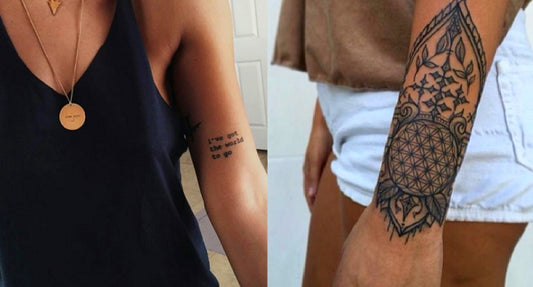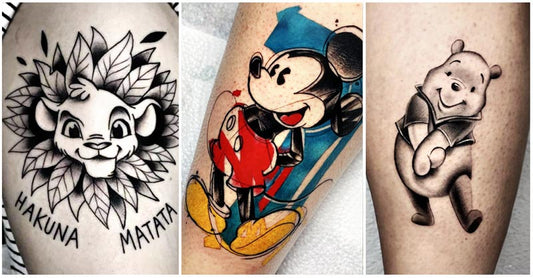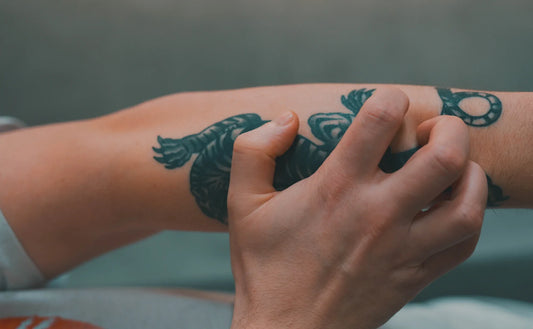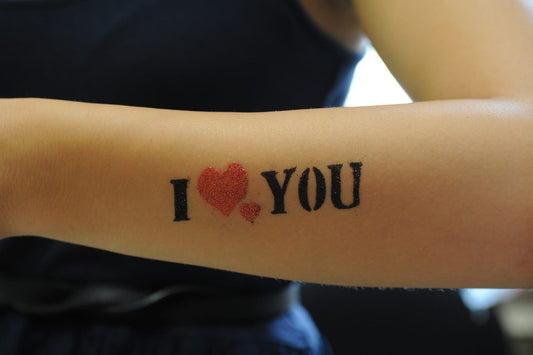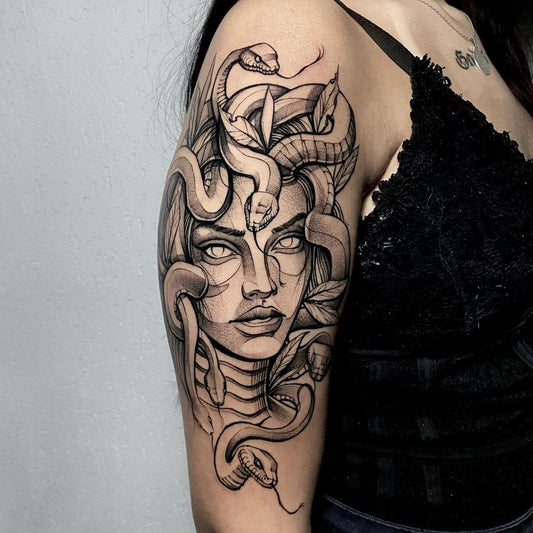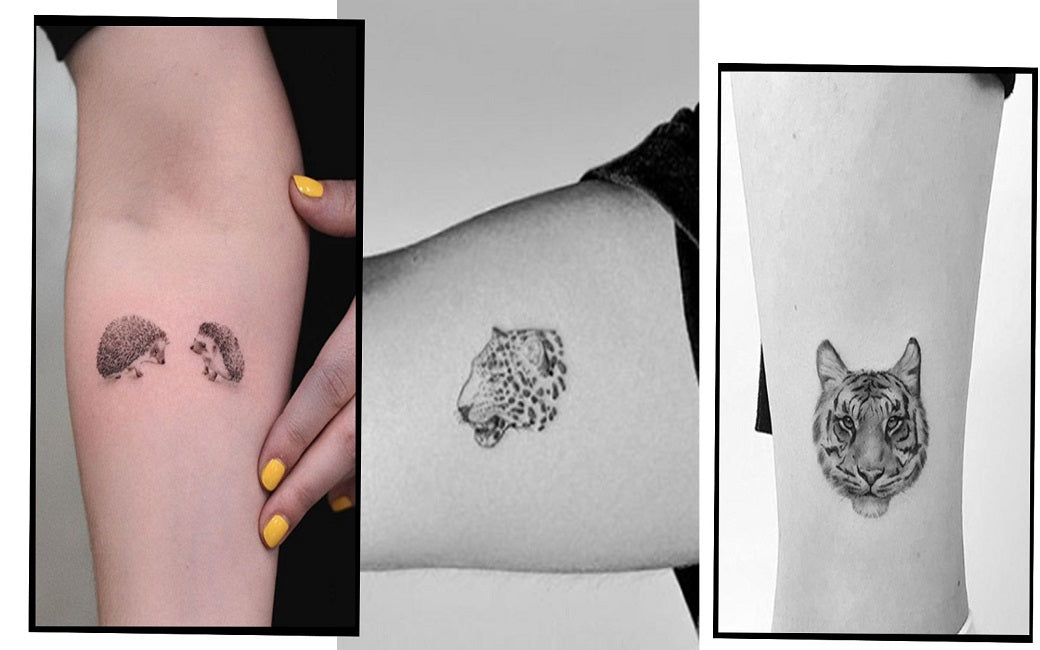
Everything You Need to Know About Tattoos
Tattoos have been around for centuries, and their popularity only seems to be increasing. Whether you're thinking about getting your first tattoo or you're a seasoned pro, there's always something new to learn about this art form. In this article, we'll cover everything you need to know about tattoos - from the history of tattooing to the different types of tattoos you can get.
1. The Earliest Tattoo
If you're considering getting a tattoo, you're probably wondering about the history of this popular body art. When did people start getting tattoos? The earliest tattoo that has been discovered belongs to the Iceman, a 5,300-year-old mummy found in the Italian Alps. But it's possible that tattoos are even older than that.
Tattoos have been found on mummies from other cultures as well, including Egypt and Peru. These early tattoos were probably created using sharpened tools made of bone or stone. The designs were simple and often geometric in nature.
It's thought that early tattoos were used for a variety of reasons, including religious beliefs, social status, and even medical purposes. In some cultures, tattoos were seen as a way to ward off evil spirits. In others, they were used as a form of punishment for criminals.
Today, tattoos are more popular than ever. They can be used to express one's personality or to commemorate a special event. No matter what your reason for considering a tattoo, it's important to do your research and choose a design that is meaningful to you.
2. Taboos and Legends of Tattoos
We are still unfairly biased when it comes to this practice. Tattoos have been around for centuries. Tattoos have held significance in many cultures, from Native Americans to ancient Egyptians to Maori tribes. They symbolize a person's identity in many ways, whether it's their place in the community, entering adulthood, or affiliation with a particular group. Tattoos have been around for centuries, and their popularity has only increased in recent years. But there are still some taboos and legends surrounding tattoos that prevent many people from getting them. Here are some of the most common myths about tattoos:
Myth #1: Tattoos are permanent and can never be removed.
This is simply not true! There are a number of tattoo removal methods available, including laser removal, dermabrasion, and even surgery. While it is true that some tattoos may be more difficult to remove than others, almost all tattoos can be removed if you're willing to put in the time and effort.
Myth #2: Tattoos are painful and dangerous.
Getting a tattoo does involve a certain amount of pain, but it's usually not as bad as people imagine. And as far as danger goes, there are risks associated with any type of body modification. But as long as you do your research and choose a reputable artist, the risks are minimal.
Myth #3: Tattoos are dirty and unhygienic.
This myth is probably based on the fact that tattoos were once associated with sailors and other members of the working class who often had poor hygiene. But today, tattoos are mainstream and most artists take great care to ensure their client's safety. The equipment used is sterile and the needles are always new.
Myth #4: Tattoos will ruin your skin.
This is another myth that's based on outdated information. Thanks to advances in tattooing techniques and sterilization methods, there's no reason to believe that tattoos will ruin your skin. In fact, many people find that their tattoos actually improve the look of their skin!
Myth #5: You can't get a tattoo if you're pregnant.
There's no medical evidence to support this claim, and in fact, many women get tattoos during pregnancy without any problems. However, it's always best to check with your doctor first just to be safe.
3. The Tattoo Culture Varies from Place to Place
There are many different places that see tattoos. Some people think that only certain types of people get tattoos, but this is not true. Many different types of people get tattoos for many different reasons. Some people get them for religious reasons, some for political reasons, and some for personal reasons. There are many different types of tattoos, and each one has a different meaning.
There are many different places that you can get a tattoo. You can go to a tattoo parlor, or you can get one done at home. If you are thinking about getting a tattoo, you should definitely do some research first. There are many different things that you need to consider before you make your decision. You need to think about the size of the tattoo, the placement of the tattoo, and the type of tattoo that you want. You also need to think about the meaning of the tattoo and what it will mean to you.
Getting a tattoo is a big decision, and you should definitely think about it carefully before you make your final decision. Tattoos are permanent, and they will be with you for the rest of your life. Make sure that you take the time to research all of your options before you make your final decision.
4. Preparation Before Tattoo
If you're thinking about getting a tattoo, there are a few things you need to do beforehand to ensure that the process goes smoothly. Here are a few tips on how to prepare for your tattoo:
- Choose Your Design Wisely - Don't pick a design simply because it's trendy or looks cool. Pick something that has meaning to you and that you'll be happy with for years to come.
- Do Some Research - Make sure you know exactly what you want before you head to the tattoo shop. Once you're there, the artist will ask you specific questions about your design, so it's important that you have a clear idea of what you want.
- Choose the Right Artist - Not all tattoo artists are created equal. Do some research on different artists in your area and find one whose style matches what you're looking for. It's also important that you feel comfortable with the artist and that they have a good reputation.
- Be Prepared for the Pain - Getting a tattoo is going to hurt, there's no way around that. But there are ways to minimize the pain, such as numbing creams and taking painkillers beforehand. If you're worried about the pain, talk to your artist about ways to make the experience more comfortable.
- Follow Aftercare Instructions - Once your tattoo is done, it's important that you follow the artist's aftercare instructions to prevent infection and ensure proper healing.

5. Tattoo Process
A tattoo is a form of body modification where a design is made by inserting ink, dyes and pigments, either indelible or temporary, into the dermis layer of the skin to change the pigment. The art of making tattoos is tattooing. Tattoos fall into three broad categories: purely decorative (with no specific meaning); symbolic (with a specific meaning pertinent to the wearer); and pictorial (a depiction of a specific person or event). Tattoos are considered permanent because they are difficult to remove. Many people choose to get tattoos as a form of self-expression, to commemorate an event, or as a fashion statement.If you're thinking about getting a tattoo, there are a few things you should know before making your decision. First, you need to decide what kind of tattoo you want. There are thousands of different designs to choose from, so take some time to look around and find one that you like. Once you've decided on a design, you need to find a reputable tattoo artist who can do the work. Ask around for recommendations or check online reviews.
When you've found an artist you're comfortable with, it's time to discuss your design and decide on placement for your tattoo. The artist will then transfer the design onto your skin and begin the tattooing process. This can be a painful experience, so be prepared for it.
Once the tattoo is finished, the artist will clean up the area and apply a bandage or plastic wrap to protect the tattoo. You'll need to keep the area clean and dry for the next few days and avoid exposure to sunlight or other sources of ultraviolet light. After a few days, you can remove the bandage and begin washing and moisturizing the tattoo as directed by your artist.
Tattoos are permanent, so make sure you're absolutely sure about your decision before getting one.
6. Post-Tattoo Care
After you've gotten your tattoo, it's important to take care of it to ensure that it stays healthy and looks its best. Here are a few tips on how to properly care for your tattoo:
-Keep the area clean. Gently wash the tattooed area with soap and water a few times a day.
-Apply a thin layer of tattoo ointment. This will help keep the area moist and protected.
-Avoid picking or scratching at the tattoo. Let it heal properly on its own.
-Stay out of the sun. UV rays can damage your tattoo and cause it to fade prematurely.
By following these simple tips, you can help your tattoo stay healthy and look great for years to come!
7. Conclusion
If you're considering getting a tattoo, we hope this article has helped you understand a little more about the process and what to expect. Remember to do your research and choose a reputable shop and artist. And most importantly, listen to your gut—if you're not ready, don't do it!
If you found this article, you might also like our other articles on popular tattoo styles and the cost of tattoos.





